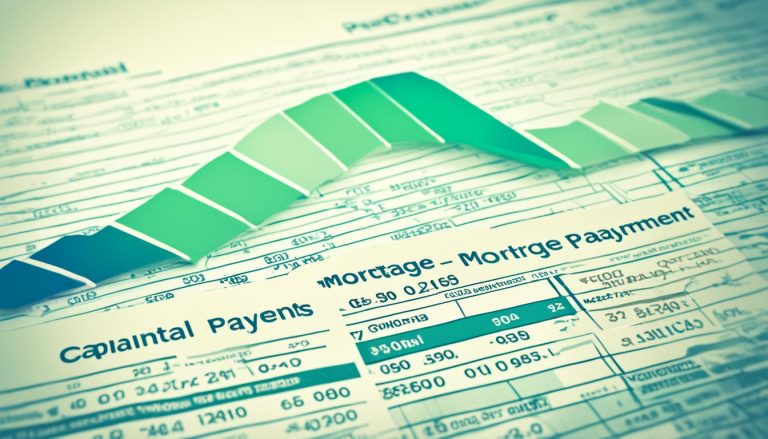Welcome to our comprehensive guide on Guarantor Mortgages, a lifeline for those looking to step onto the property ladder without a hefty deposit. Buying a home can feel like an unattainable dream for many, especially in today’s competitive market. But with the help of a Guarantor Mortgage, that dream can become a reality sooner than you think.
What is a Guarantor Mortgage?
A guarantor mortgage is a type of mortgage that allows individuals to secure funding for a property purchase, even if they have no deposit or a poor credit score. This can be an excellent option for those who are struggling to save for a deposit or have limited credit history. So, how does a guarantor mortgage work?
In a guarantor mortgage, a guarantor, typically a parent, relative, or close friend, agrees to cover the borrower’s mortgage repayments in case they are unable to do so. The guarantor does not have ownership of the property, but they provide their own property or savings as security.
How do Guarantor Mortgages Work?
A guarantor mortgage works by using someone else’s property or savings as security for the loan. The guarantor adds their name to the legal documents, agreeing to make repayments if the borrower is unable to do so. This arrangement reduces the risk for the lender and increases the borrower’s chances of obtaining a mortgage, even with a low deposit or bad credit history.
With a guarantor mortgage, the lender has the option to forcibly sell the guarantor’s property or use the guarantor’s savings to cover any missed mortgage repayments. This provides added security for the lender, ensuring they won’t be at a financial loss even if the borrower cannot make the monthly payments.
There are different ways in which a guarantor’s property or savings can be used as security. Some guarantor mortgages use savings as security, where the guarantor sets aside cash in a special savings account. If the mortgage goes into default, the money from this account is used to pay off the loan.
Another option is linking the guarantor’s money directly to the mortgage to reduce the interest and make the repayments cheaper. However, in this case, there is no interest paid on the guarantor’s savings as they act as security for the loan.
A guarantor mortgage can provide an opportunity for individuals to access funding or obtain better rates that might otherwise be difficult to obtain. It allows borrowers with limited savings or poor credit history to secure a mortgage and purchase a property.

Advantages of Guarantor Mortgages:
- Increased chances of mortgage approval, even with a low deposit or bad credit history.
- Potential for lower interest rates and more favorable loan terms.
- Access to funding that might otherwise be challenging to obtain.
- Opportunity to purchase a property when struggling to save for a deposit.
Disadvantages of Guarantor Mortgages:
- The guarantor takes on financial responsibility for the borrower’s mortgage repayments.
- Risk of losing the guarantor’s property or savings if the borrower defaults on the mortgage.
- Potential impact on the guarantor’s credit report and financial situation.
- Requiring the guarantor to meet specific eligibility requirements, such as good credit history and property ownership.
Before considering a guarantor mortgage, it is essential for both the borrower and the guarantor to carefully consider the risks involved and seek independent legal and financial advice. Understanding the terms and obligations associated with the guarantor mortgage is crucial to making an informed decision.
| Advantages of Guarantor Mortgages | Disadvantages of Guarantor Mortgages |
|---|---|
| Increased chances of mortgage approval, even with a low deposit or bad credit history. | The guarantor takes on financial responsibility for the borrower’s mortgage repayments. |
| Potential for lower interest rates and more favorable loan terms. | Risk of losing the guarantor’s property or savings if the borrower defaults on the mortgage. |
| Access to funding that might otherwise be challenging to obtain. | Potential impact on the guarantor’s credit report and financial situation. |
| Opportunity to purchase a property when struggling to save for a deposit. | Requiring the guarantor to meet specific eligibility requirements, such as good credit history and property ownership. |
Who can be a Guarantor?
Typically, people ask their parents or older relatives to be their guarantor for a mortgage. Lenders often require the guarantor to be a family member. The guarantor must have a good credit history and be a homeowner. Some lenders may insist that the guarantor has fully paid off their own mortgage, while others may accept a certain amount of equity in the property. The guarantor must also have a steady income to cover both their own repayments and the borrower’s in case of default. It is crucial for anyone considering being a guarantor to do their own research, obtain independent legal advice, and ensure they have all the necessary documents in order.
To summarize, a guarantor for a mortgage must meet the following criteria:
- Be a family member, such as a parent or relative
- Have a good credit history
- Be a homeowner
- Have either fully paid off their own mortgage or have a certain amount of equity in the property
- Have a steady income to cover their own repayments and the borrower’s in case of default
Choosing the right guarantor is a decision that should not be taken lightly. It is important for both the borrower and the guarantor to fully understand the responsibilities and potential risks involved. Seeking independent legal advice and conducting thorough research will help ensure that all parties involved are well-informed and protected.
Example of a Guarantor Mortgage Criteria
| Requirement | Criteria |
|---|---|
| Relationship | Family member (parent, relative) |
| Credit History | Good credit score |
| Homeownership | Must own a property |
| Mortgage Status | Fully paid off mortgage or equity in the property |
| Income | Steady income to cover own repayments and borrower’s in case of default |
Who can get a Guarantor Mortgage?
A guarantor mortgage can be a suitable option for individuals who may find it challenging to secure a mortgage due to various circumstances. This type of mortgage is particularly beneficial for those facing difficulties in saving enough money for a deposit, individuals who have a bad credit score, or those with limited credit history. It can also be an attractive solution for borrowers who require a 100% mortgage, meaning no deposit is required at all.
Guarantor mortgages provide the opportunity to access funding and potentially secure better interest rates that might otherwise be challenging to obtain. They offer borrowers the chance to overcome financial barriers and fulfill their dreams of owning a home. However, it is essential to carefully consider all the risks associated with guarantor mortgages before making a decision. Seeking independent advice from mortgage professionals can help individuals gain a comprehensive understanding of the advantages and potential pitfalls involved.

By having a reliable guarantor in place, borrowers can leverage their financial support to increase their chances of mortgage approval. Additionally, having a guarantor signals to lenders that there is a stronger level of security in place, reducing their perceived risk.
Table:
| Benefits of a Guarantor Mortgage | Considerations |
|---|---|
|
|
With careful consideration and proper legal guidance, a guarantor mortgage can be a viable solution for individuals who are struggling to enter the property market through conventional means. It is essential to assess one’s financial capability and the risks involved before committing to a guarantor mortgage.
Risks and Considerations of Guarantor Mortgages
Being a guarantor for a mortgage comes with risks and responsibilities. If the borrower is unable to make repayments, the guarantor is legally responsible for paying the mortgage. This legal responsibility means that the guarantor’s own home and credit report are at risk if they cannot make the payments.
A crucial step in the mortgage process is a credit check. The guarantor’s credit score will be assessed, and this can impact the likelihood of the mortgage being approved. It is essential for both the borrower and the guarantor to have a clear understanding of the potential risks involved.
Missed repayments on a guarantor mortgage can have severe consequences for the guarantor. If they are unable to meet the financial obligations, they risk losing their own home and damaging their credit report. This highlights the importance of carefully considering your financial situation and ability to take on the legal responsibility of being a guarantor before entering into an agreement.
Seeking independent legal advice is highly recommended for both the borrower and the potential guarantor. Independent legal advice can provide a comprehensive understanding of the terms and conditions of the guarantor mortgage, helping individuals make informed decisions.
Key Risks and Considerations:
- Legal responsibility for paying the mortgage if the borrower defaults
- Potential risk of losing the guarantor’s own home
- Possible damage to the guarantor’s credit report
- Credit check for the guarantor, impacting mortgage approval
- Importance of independent legal advice and understanding the terms
It is crucial to carefully evaluate the risks involved in becoming a guarantor and seek independent legal advice to fully comprehend the legal responsibilities and potential consequences. By understanding the risks and taking necessary precautions, individuals can make informed decisions about whether a guarantor mortgage is the right choice for their specific financial circumstances.

How much can I borrow with a Guarantor Mortgage?
When considering a guarantor mortgage, one of the key questions that arises is the borrowing limit. With a guarantor, individuals may have the opportunity to borrow up to 100% of the property value, although this is relatively rare. Most lenders still require at least a 5% deposit to be contributed by the borrower. The exact borrowing limit will depend on various factors, including the borrower’s credit history and the specific criteria set by the lender.
It’s worth noting that some lenders may have restrictions on guarantor mortgages in relation to government schemes or initiatives such as Right to Buy. Therefore, it’s essential to research and compare lenders to find the best options that meet your specific needs. Seeking advice from a mortgage broker can also provide valuable insights and guidance in navigating the borrowing process.

Comparative Borrowing Limits with Guarantor Mortgages
| Lender | Borrowing Limit | Deposit Requirement | Government Scheme Eligibility |
|---|---|---|---|
| ABC Mortgages | Up to 100% | At least 5% | Eligible |
| XYZ Lending | Up to 95% | At least 10% | Not eligible |
| DEF Bank | Up to 90% | At least 15% | Eligible with limitations |
The table above provides a comparison of borrowing limits among different lenders offering guarantor mortgages. It highlights the maximum percentage of the property value that can be borrowed, the required deposit, and the eligibility for government schemes. Remember to review and understand each lender’s terms and conditions before making a decision.
Conclusion
A guarantor mortgage can be a valuable solution for individuals struggling to secure a mortgage on their own. Whether faced with a poor credit history, limited income, or a lack of savings, a guarantor mortgage offers the opportunity to access funding or obtain better rates with the support of a guarantor. However, it is vital to carefully consider the risks involved, including the guarantor’s legal responsibility and the potential impact on their credit and financial situation.
Prior to committing to a guarantor mortgage, seeking independent legal advice and conducting thorough research is essential. Understanding borrower eligibility, lender requirements, and the associated risks is crucial to ensure a successful and beneficial mortgage arrangement. By taking these important steps, borrowers can make informed decisions and find the right guarantor mortgage that suits their specific needs.
Remember, a guarantor mortgage can provide the necessary support for individuals to achieve their homeownership dreams, but it is essential to approach the process with caution and diligence. With the right advice and careful planning, a guarantor mortgage can be a valuable opportunity for those who may not otherwise qualify for a traditional mortgage.






